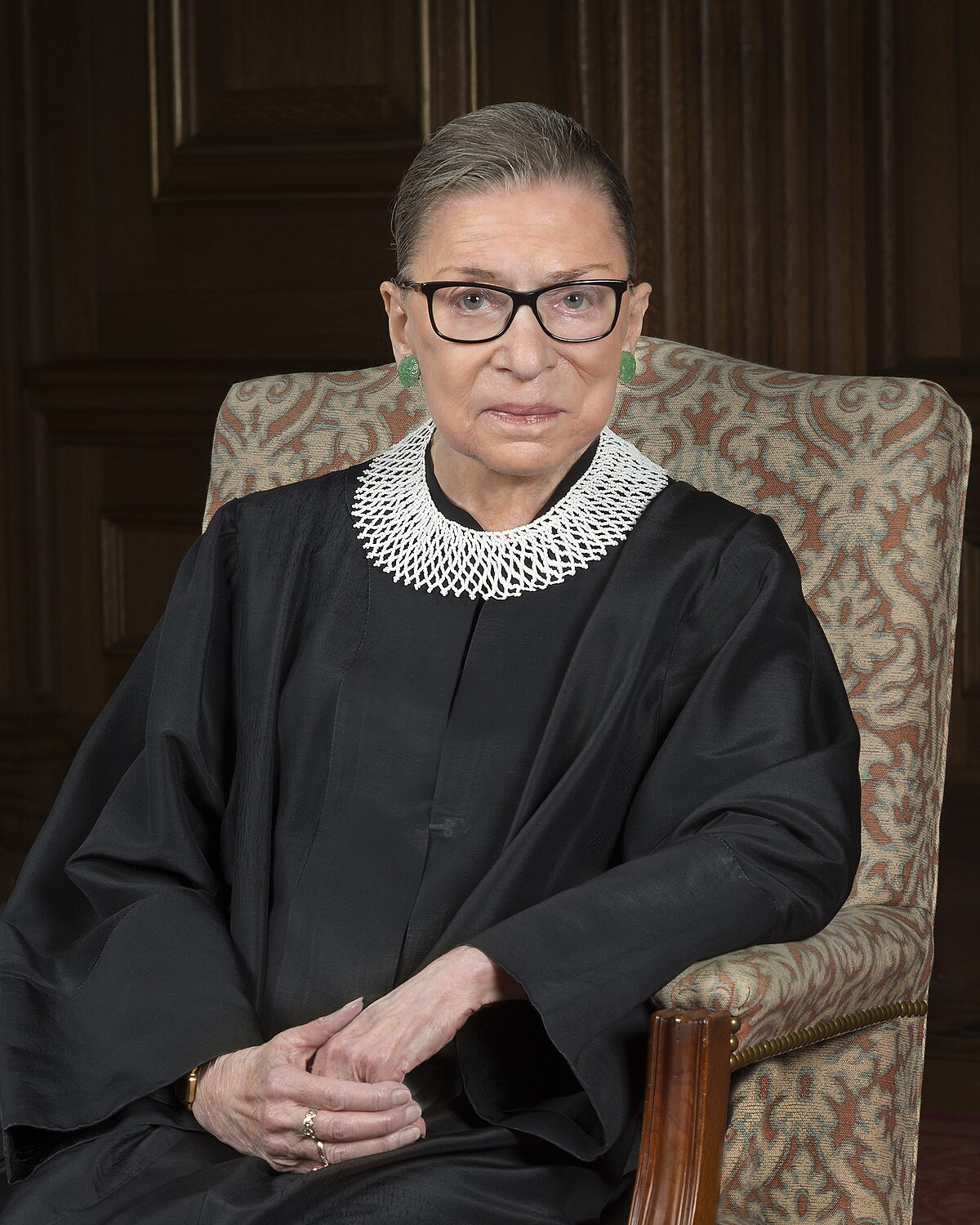
|
Getting your Trinity Audio player ready...
|
Joan Ruth Bader Ginsburg (March 15, 1933 – September 18, 2020) was a pioneering feminist, lawyer, and jurist who dedicated her life to dismantling gender discrimination and advancing women’s rights. As an associate justice of the Supreme Court of the United States from 1993 until her passing, she was a relentless advocate for gender equality and civil rights.
Nominated by President Bill Clinton, she was the second woman and the first Jewish woman to serve on the Court. Her bold and unwavering dissents earned her the moniker “The Notorious R.B.G.,” a symbol of resistance and feminist empowerment.
Early Life and Education
Born in Brooklyn, New York, Joan Ruth was raised by her mother, Celia Bader, who instilled in her a deep respect for education and independence. Though she faced personal tragedies, including the loss of her mother just before her high school graduation, she persevered and excelled academically. She earned her bachelor’s degree from Cornell University, where she met her lifelong partner, Martin Ginsburg.
At Harvard Law School, she was one of only nine women in a class of 500 and was subjected to overt discrimination from faculty and peers. Undeterred, she later transferred to Columbia Law School, where she graduated first in her class, setting the stage for her groundbreaking legal career.
Legal Career and Advocacy
Ruth’s career was defined by her tireless fight for gender equality. As a professor at Rutgers and Columbia, she was a rare female voice in a male-dominated field. She co-founded the Women’s Rights Project at the American Civil Liberties Union (ACLU), strategically litigating cases that challenged discriminatory laws and redefined gender roles in American society.
Throughout the 1970s, she argued six landmark gender discrimination cases before the Supreme Court, winning five of them. She demonstrated how sexism harmed both women and men, dismantling outdated legal structures that upheld patriarchal norms.
In 1980, President Jimmy Carter appointed her to the U.S. Court of Appeals for the District of Columbia Circuit. Though known for her measured approach, she never wavered in her commitment to gender justice. She built alliances across ideological lines while maintaining a resolute dedication to women’s rights.
Supreme Court Tenure: Championing Gender Equality
When she joined the Supreme Court in 1993, she became a force for gender justice. She authored the majority opinion in United States v. Virginia (1996), which struck down the Virginia Military Institute’s male-only admissions policy as unconstitutional, affirming that gender-based exclusion has no place in a just society.
As the Court grew more conservative, Ginsburg became the leading voice of dissent, fiercely challenging rulings that threatened women’s rights and civil liberties. In Ledbetter v. Goodyear Tire & Rubber Co. (2007), she called out the majority’s ruling on pay discrimination, inspiring the passage of the Lilly Ledbetter Fair Pay Act in 2009. Her dissent in Shelby County v. Holder (2013) warned against dismantling voting protections, comparing it to “throwing away your umbrella in a rainstorm because you are not getting wet.”
A Feminist Icon and Her Enduring Legacy
Ruth’s influence extended beyond the courtroom. She became a cultural and feminist icon, inspiring generations of women to challenge systemic injustice. Her signature collars, unwavering resilience, and commitment to justice made her a beacon of feminist resistance.
Despite multiple battles with cancer, Ginsburg continued her work until her passing in 2020. Her death ignited a fierce political battle over her replacement, with Amy Coney Barrett confirmed to the Court just 39 days later, underscoring the urgency of protecting women’s rights in an evolving judicial landscape.
A Legacy of Feminist Resistance
Ruth Bader Ginsburg’s legacy is a testament to the power of perseverance, intellect, and an unyielding commitment to gender justice. Her work reshaped American law, empowering women to claim their rights and challenging institutions that sought to suppress them. Her words and dissents remain a guiding force for those fighting for equality, proving that the pursuit of justice is never over but must be carried forward by future generations.






